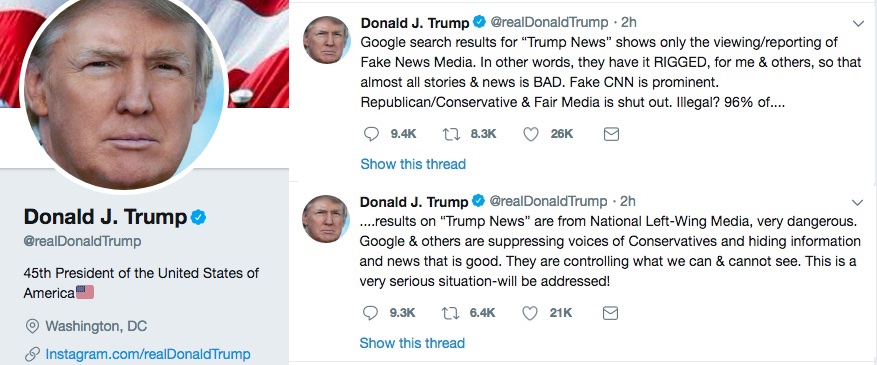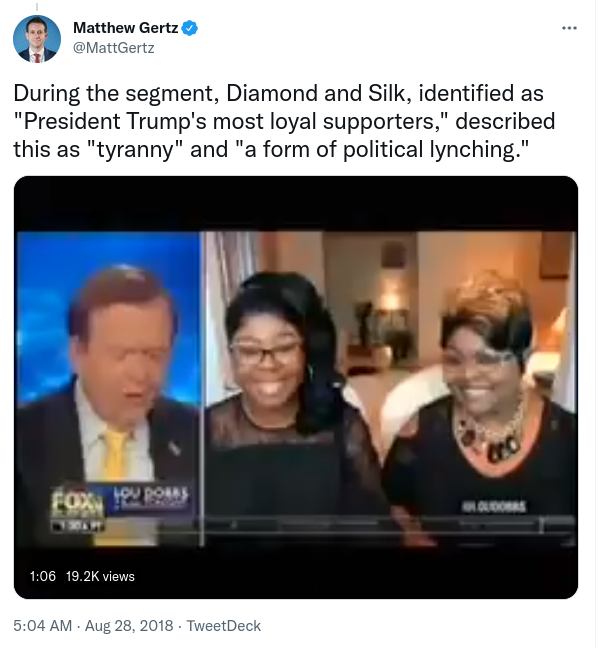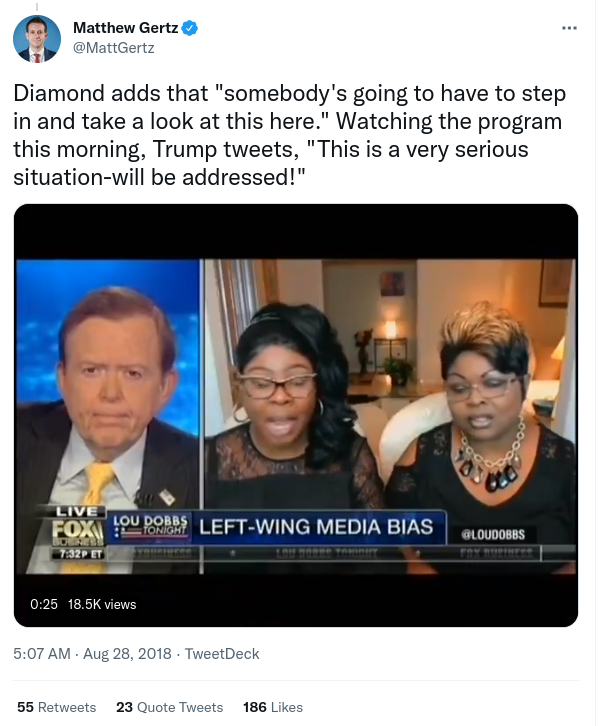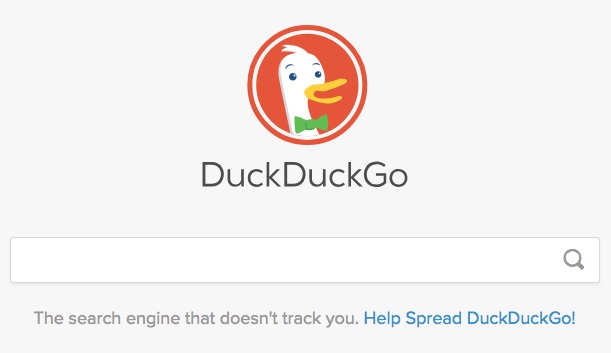; Date: Tue Aug 28 2018
Tags: Google »»»» President Trump »»»» Conservatives »»»» Politics »»»»
In a series of tweets this morning President Trump demonstrates how little he understands search engines and ranking algorithms. The President claimed that Google is stifling "Conservative" news outlets, that 96% of news search results are slanted against Conservatives by the "National Left-Wing Media" and other Liberal establishments like Google. This attack follows recent similar attacks against Twitter and Facebook and the supposed "shadow banning" exercised to keep folks from seeing Conservative views. What this really shows is either that Trump does not understand how search engines and ranking algorithms work, or else that Trump and his cronies are propping up a fake controversy. Based on this misportrayal of Google/Twitter/Facebook policies, the Trump Administration is promising to "look into" regulating these services, raising the chilling prospect of using this to then stifle actual freedom of speech.

This isn't a "bizarre attack" or "crazed rant" that came out of the blue. Instead this attack is part of a bigger pattern, such as attacks by Trump and other Republicans against so-called "shadow banning" conducted by social media networks like Twitter and Facebook. Further, the repeated attacks on the so-called "national left-wing media", labeling truth-oriented outlets like the NY Times and CNN as "Fake News", well, this is scary every time these charges are repeated.
These news outlets (NY Times, Washington Post, CNN, et al) generally practice truthful honest journalism. Their job is to uncover and report the truth. Persons in power do not always like it when journalists do their job, and as a result journalists are sometimes murdered because of their reporting. In part what Trump is raging against is simply that news outlets are doing their job and reporting on the many controversies of his Administration. We the people need to know about those controversies so that we the people can decide whether to continue supporting the Trump Administration.
Shadow Banning
Trump et al have complained several times in recent months that YouTube or Twitter or Facebook are making it harder for folks to find "Conservative" content. It is being called "shadow banning", a term of art going back many years among online forum moderators. A forum moderator might find someone who is repeatedly causing problems among the user, and put a "shadow ban" around that user making their postings hard to find in a way that nobody realizes the person has been shadow banned. All owners of such sites must practice some kind of moderation, to ensure discussion on the forum or social network is civil enough.
In this case the "shadow banning" controversy is over-hyped and in one case simply a result of misconfigured Twitter settings.
- What is Shadow Banning? Banning a member such that they do not know they're banned
- Rep. McCarthy was not shadow banned, his Twitter account was misconfigured to hide postings
- Pres. Trump slams move to ban hate-speech mongerers like Alex Jones
Triggering Trump
Apparently what triggered President Trump is this interview last night on Lou Dobbs show on Fox.


These women are apparently YouTube "stars" known as "Diamond and Silk". I'd never heard of them before now indicating they occupy a different information bubble than the one I circulate in. They are clearly strong supporters of President Trump.
According to
a report on Alternet:
Diamond and Silk, who previously were caught lying under oath about a payment they received from the Trump campaign, become a GOP cause celebré after Facebook sent them an erroneous message deeming their content "unsafe." They have leveraged this into a sweeping conspiracy theory that big tech sites are silencing conservative content — which is debunked by hard data showing their Facebook engagements actually increased in the past year.
Clearly these women are strongly slanted towards Trump, and may even be paid shills of some political operation.
The possible policy result -- Regulating Google et al
The Lou Dobbs program gave these two a national stage with which to peddle their conspiracy theory. President Trump heard that theory, and heard their call for someone to do something about it. President trump called it "illegal" that CNN et al have "rigged" the system against him and others, and vowed that this "very serious situation..will be addressed".
And, this morning senior economic advisor to President Trump, Larry Kudlow,
said to reporters that they're taking a look at regulating Internet searches (Google et al). Asked whether the Trump Administration feels "there needs to be some form of regulation for Google," Kudlow replied "We'll let you know. We're taking a look at it," as he walked back into the White House after a TV interview with Fox News.
The problem -- Google et al MUST use algorithms to filter and sort search results
In their interview Diamond and Silk complained about "algorithms" deciding what we see. And yes there is a risk the owner of a given site will skew search results for political motives. The problem is not that algorithms are deciding what we see. The problem is that we do not know what those algorithms are.
For its part, Google responded saying:
When users type queries into the Google Search bar, our goal is to make sure they receive the most relevant answers in a matter of seconds. Search is not used to set a political agenda and we don’t bias our results toward any political ideology. Every year, we issue hundreds of improvements to our algorithms to ensure they surface high-quality content in response to users’ queries. We continually work to improve Google Search and we never rank search results to manipulate political sentiment.
Google has consistently said this same thing over the years. Every similar site, Google, DuckDuckGo, Bing, Twitter, Facebook, InstaGram, YouTube, etc, all have search algorithms to rank the most useful results first.
In the olden days 15-20 years ago when all this was first starting out, these sites had weaker ranking algorithms. Back then search results were full of outright junk because nefarious folk learned how to "game" these results. For example it was found back then that simple lists of words would rank well in search results, then put an Adsense banner next to that list and bang you're making advertising revenue.
The advanced algorithms used today are a result of trying to keep such nefarious websites from surfacing in news results.

As an exercise -- go to your favorite search engine (I use DuckDuckGo). Ponder this while looking at the query box: How does the search engine choose the results to show?
If it shows an alphabetical list of results, folks named Zoltan will be complaining about alphabetic discrimination.
If results are shown in chronological order, folks with old websites full of extremely useful information will complain about age discrimination.
If the results are not filtered for junk sites, spam sites, malware sites, etc, then we will all be at risk of having computers infested with malware or to be reading outright falsehoods.
In other words, it's as Google said above. Google et al must, in order to do their jobs, filter out junky/spammy sites, and sort the results by some kind of indicator of relavence and usefulness.
But -- why is the algorithm so secret?
We cannot inspect the algorithms used by any of the search engines. Because of that the mysterious ranking of search results is driving folks to make claims like this.
Supposedly if the algorithms were published the nefarious folks would have an easier time of gaming the algorithms to make their nefarious content pop to the top of search results. Therefore the search engines put a curtain of strict secrecy around the exact algorithms.
It is human nature to distrust hidden secretive things.











